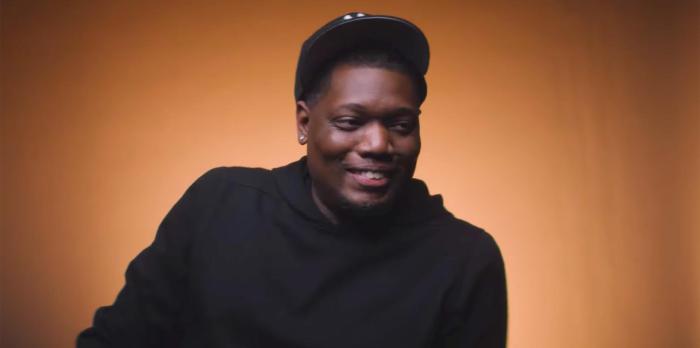By Dustin Rowles | TV | May 6, 2021

In 2016, I thought Michael Che and Colin Jost were the exact wrong “Weekend Update” anchors for the time, and I stand by that. But, I will also say that over the years, Jost and Che have gotten considerably better, they have great chemistry together, and — as is often the case with SNL — “Update” is regularly the best part of a given episode.
A lot of that has to do with Michael Che, who — for better or worse — reminds me a lot of Norm McDonald behind the desk, in that he frequently breaks format, he takes a lot of risks, and he doesn’t give a sh-t what people think. He’s also kind of a dick. But like Fey and Poehler, he’s good at sneaking in the occasional political rant disguised as comedy. Che is funny, and he’s very good at mining uncomfortable truths for laughs, and he will say the things on SNL that other cast members will not for fear of being canceled.
But then once every two or three shows, he blows it all up with a sexist or transphobic joke, and it’s just like, “Why, Che?! Why!” More than anyone from the modern era of SNL, he lacks the filter that might keep him out of trouble. I think that Che thinks he’s reacting to what he believes is a performatively woke culture — and maybe that exists, to a degree — but it’s not like anyone is asking Che to be “politically correct.” It would be enough simply not to be actively anti-PC. He loves to make jokes that will elicit not laughs but groans.
HBO Max’s That Damn Michael Che has a lot in common with Che’s “Update” in that he is able to successfully mine a lot of uncomfortable truths, but then he blows it all up with the occasional tone-deaf joke. Overall, I liked That Damn Michael Che. I watched all six episodes in one sitting, and I laughed a lot, but I also cringed occasionally because Che loves to poke his finger into open wounds and then blame us for squealing.
In episode four, Michael Che says something about the Black community that I think he also very much means about himself. “Black people are the most liberal people I know, but they’re also the most conservative people I know, where they’re willing to stand up for injustice just as long as it ain’t something they don’t tolerate.” That’s his way of introducing a skit about an NBA player who tries to get his team to use their platform for change. His team is fully on board up until he says, “We will not stop kneeling until there is equality for Black Trans Women,” which is when all of his teammates take a step back because they’ll stand for Black America, but trans America is a bridge too far. That’s Michael Che to a tee.
With Che, you just have to decide whether you want to take the bad with the good, because there’s a lot of good here, too. There’s an entire episode about vaccine hesitancy among the Black community that’s hilarious. The opening episode confronts cops killing Black men with a fantastic PSA performed by police officers. There’s a hit-and-miss episode about how everyone believes that Black people in Hollywood only succeed if they make a blood sacrifice, do something gay, or sell out to white people (it’s borderline homophobic but also features a spectacular segment with Billy Porter). The second episode takes on dating and relationships, and that’s terrain that Che should avoid because his self-deprecating jokes about being emotionally unavailable are really just jokes at the expense of nagging women. Why, Che?! Why!
The six episodes are packed with sketches, and like any sketch show, some are better than others, but the show is also best when Che is talking or riffing with friends between sketches. Really, where Che is the best — and where That Damn Michael Che succeeds the most — is when Che draws distinctions between the perceptions that progressive America has about Black people and his reality, and so much of that returns to what he says about how “Black people are the most liberal people I know, but they’re also the most conservative people.” That’s an interesting dynamic, except that Che’s liberal politics seem to extend to issues of race but when it comes to women and LGBTQ issues, Che is still woefully stuck in the ’90s.